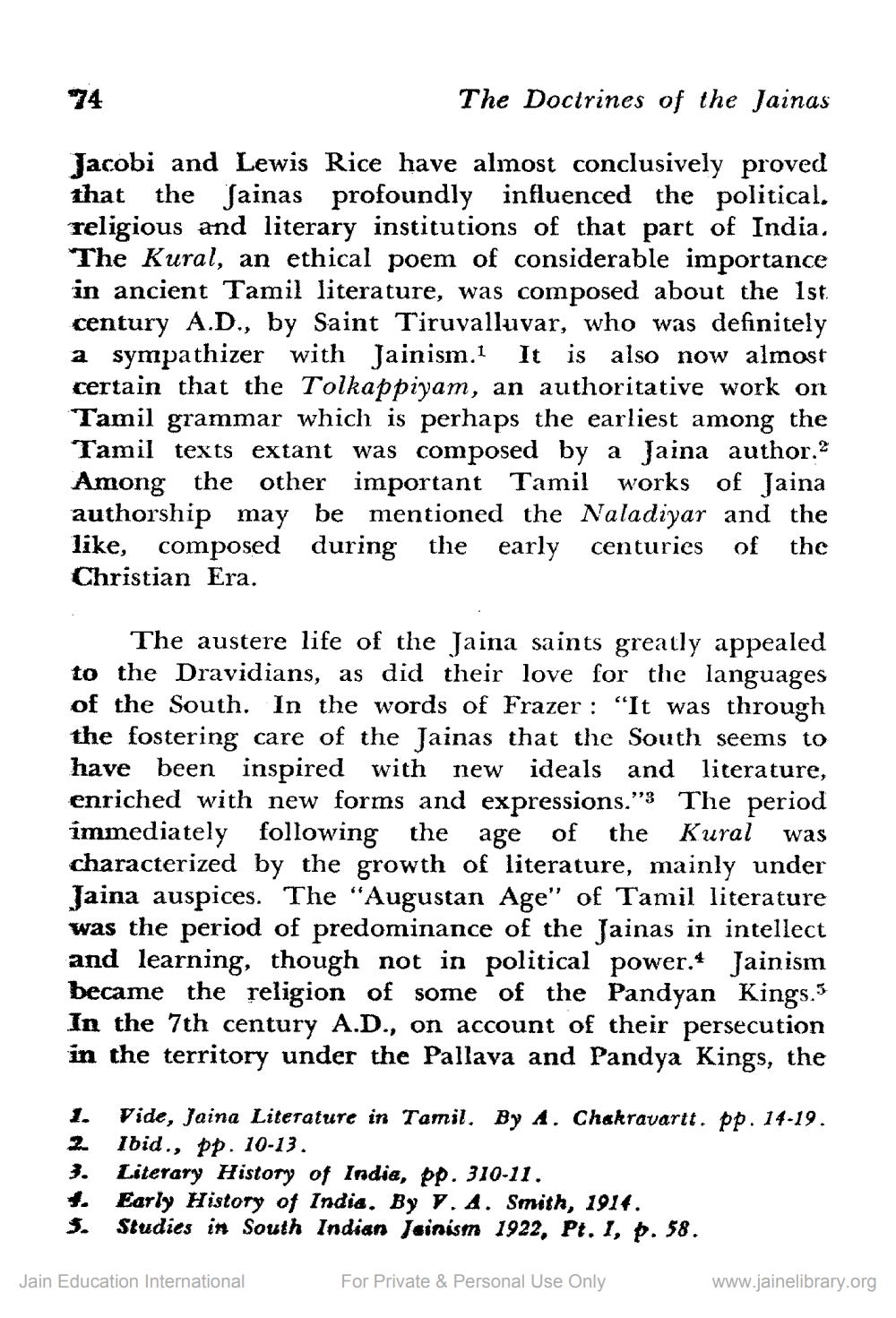________________
74
The Doctrines of the Jainas
Jacobi and Lewis Rice have almost conclusively proved that the fainas profoundly influenced the political. religious and literary institutions of that part of India. The Kural, an ethical poem of considerable importance in ancient Tamil literature, was composed about the 1st century A.D., by Saint Tiruvalluvar, who was definitely a sympathizer with Jainism. It is also now almost certain that the Tolkappiyam, an authoritative work on Tamil grammar which is perhaps the earliest among the Tamil texts extant was composed by a Jaina author.2 Among the other important Tamil works of Jaina authorship may be mentioned the Naladiyar and the like, composed during the early centuries of the Christian Era.
The austere life of the Jaina saints greatly appealed to the Dravidians, as did their love for the languages of the South. In the words of Frazer : “It was through the fostering care of the Jainas that the South seems to have been inspired with new ideals and literature, enriched with new forms and expressions."3 The period immediately following the age of the Kural was characterized by the growth of literature, mainly under Jaina auspices. The "Augustan Age" of Tamil literature was the period of predominance of the Jainas in intellect and learning, though not in political power. Jainism became the religion of some of the Pandyan Kings.5 In the 7th century A.D., on account of their persecution in the territory under the Pallava and Pandya Kings, the
1. Vide, Jaina Literature in Tamil, By A. Chakravartt. pp. 14-19. 2 Ibid., pp. 10-13. 3. Literary History of India, pp. 310-11. 4. Early History of India. By 7. A. Smith, 1914. S. Studies in South Indian Jainism 1922, Pt. 1, p. 58.
Jain Education International
For Private & Personal Use Only
www.jainelibrary.org




